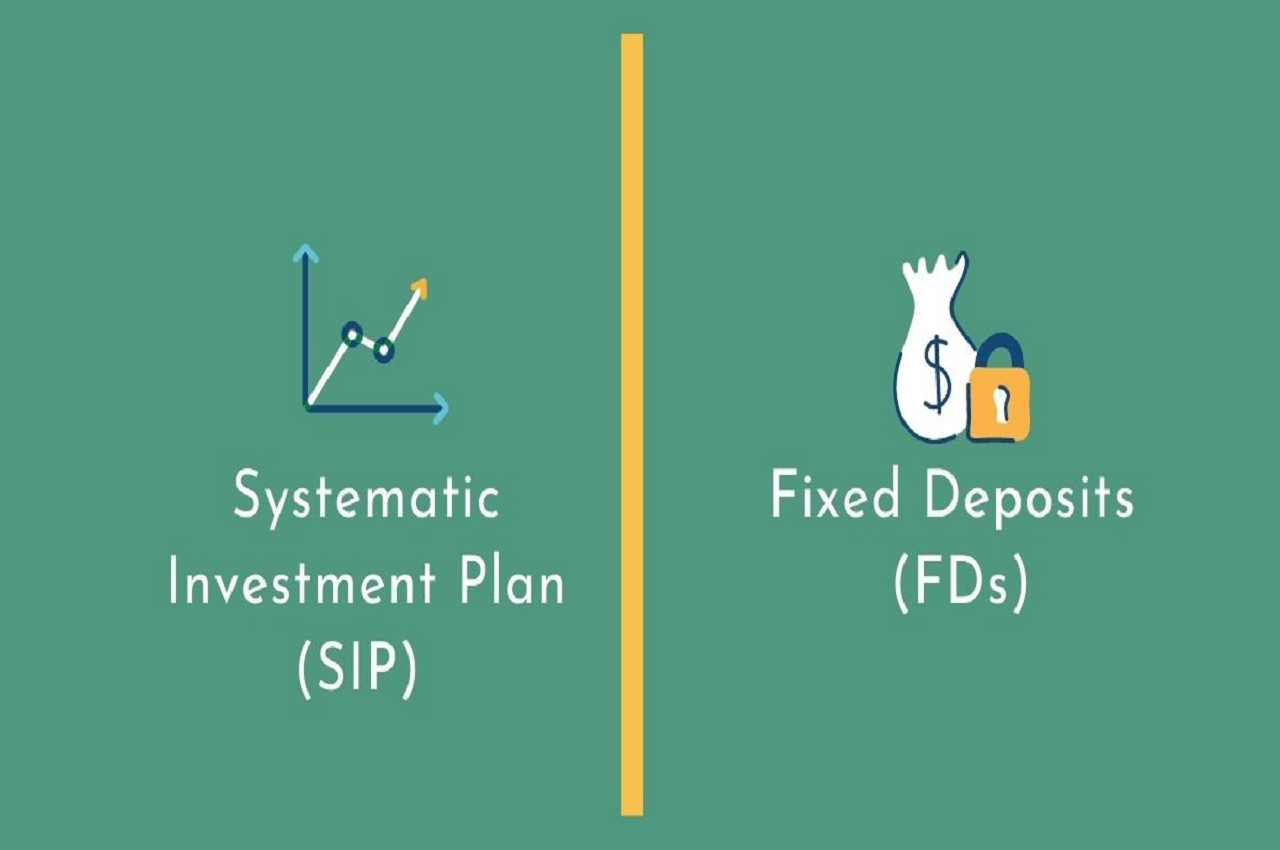Systematic Investment Plan or fixed deposits: It’s a quite tough task to select one investment plan among many investment plans and schemes. We all have our different need and different purpose for savings. This article is helpful to you in selecting the best investment plan as per your need. Among all the investment options Fixed Deposits and Systematic Investment Plans are the two options that have many advantages and a lot to offer investors. Here are the details of Systematic Investment Plan vs Fixed Deposit and the main differences between them. (Systematic Investment Plan or fixed deposits)
Systematic Investment Plan (SIP)
Systematic Investment Plan (SIP) is a Mutual Funds investment route wherein one can invest a fixed amount in a Mutual Fund scheme at regular intervals– say once a month or once a quarter, instead of making a lump-sum investment. One can start SIP investment with just Rs 500 a month. It is similar to a recurring deposit. Besides good return, SIP plan helps investors in developing discipline of timely investment in a planned manner without worrying about market volatility and timing the market. It is the best and simple way to enter in the world mutual funds. There are several advantages to investing in systematic investment strategies. The investment can be made based on the needs of the investor. The investor can readily track the progress of his or her investments. Investing in a SIP without travelling is a reasonably straightforward process. You may be eligible for tax advantages if you invest in a SIP for more than a year. SIPs allow you to invest in open-ended funds, which allow you to withdraw and invest money at any time.
Fixed Deposit
Fixed deposit is a type of lump sum investment plan at fixed interest rate for a specified period of time. It is offered by both non-banking financial institutions and banks. It is one of the safest investment plans in the market because it guarantees higher returns on the investor’s investment. The best thing about fixed deposits is that the returns on your investment are guaranteed. Banks and Non-banking financial institutions provide numerous types of fixed deposits to match the requirements of investors for short-term and long-term goals. There are many advantages of fixed deposits. It is tax-free. Fixed deposits offer flexibility because investors can select the time period and amount that best suits their needs. . In the event of an emergency, an investor can easily close the FD and withdraw the funds via overdraft. If you invest in tax-saving fixed deposits for five years, you will be eligible for a variety of tax breaks.
Main differences between SIP and Fixed Deposit
Investment: SIP investments are made in installments, whereas fixed deposits are made all at once. It is simple to begin investing in both financial instruments when considering the investment possibilities offered to potential investors in terms of SIPs and FDs. SIPs, on the other hand, are considerably simpler because one can begin with a small amount and still have a possibility to generate bigger returns.
Interest: When compared to fixed deposits, the interest rates offered by systematic investment programmes are higher. As a result, investing in SIPs is entirely dependent on chance when it comes to guaranteed returns. With FDs, the investor is promised higher returns regardless of the amount deposited.
Tax: When it comes to the critical matter of tax savings, most FDs are taxed based on the investor’s income tax band. A tax-saving FD is one that permits an investor to claim a Rs. 1.5 lakh deduction. Similarly to SIPs, if the mutual fund units are sold after a year, the investors must pay a percentage of the tax.










